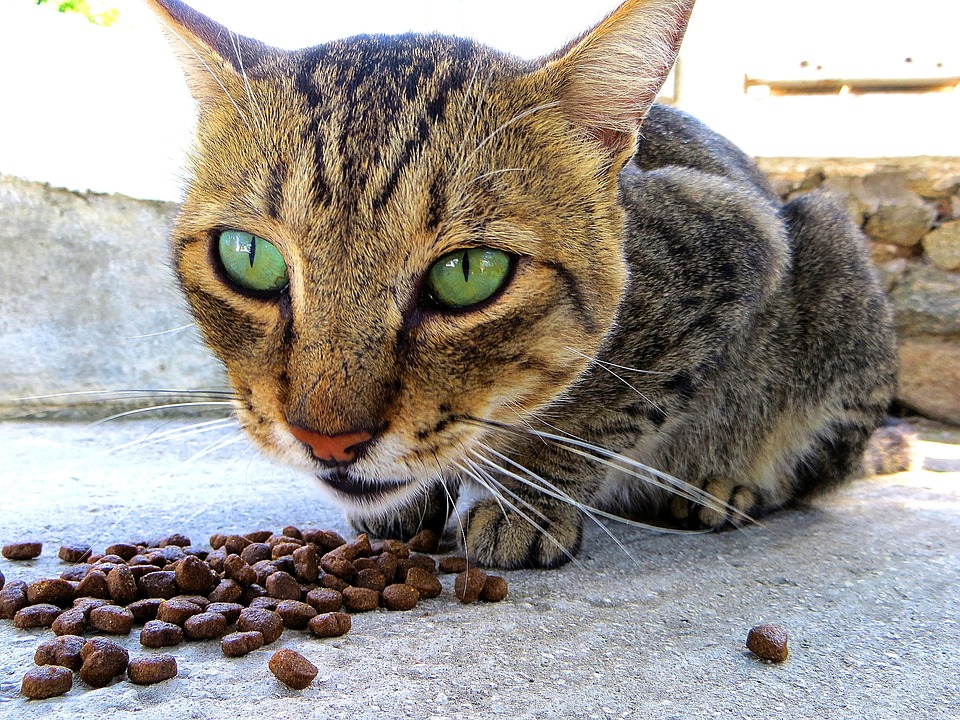 Everybody has their favorite foods, but cats are notoriously fussy when it comes to what they will or won’t eat. And often times, they’ll decide to not like something — at the precise moment when you were convinced you had finally found the one food they loved. So, what’s the deal with these finicky cats?
Everybody has their favorite foods, but cats are notoriously fussy when it comes to what they will or won’t eat. And often times, they’ll decide to not like something — at the precise moment when you were convinced you had finally found the one food they loved. So, what’s the deal with these finicky cats?
How Do Cats Choose What to Eat?
Cats have many opportunities to pick up different items from the ground with their mouths. While cats have some criteria in place in order to not swallow the wrong things (i.e. medications always seem to fall into the ‘spit it out’ category), but how do they make these choice?
According to the National Center for Biotechnology, one study observed a group of cats and their diet choices based on different combinations of foods with either a strong predominant taste or no dominant taste. It was concluded by the researcher that cats definitely use their sense of smell to select a food. The researcher found that given the choice between one food, with an attractive odor, and another without, the cats would eat the former without even bothering to taste the latter choice. However, if offered only options without an attractive choice (based on smell), the cats tasted the foods or order to make a selection.
Are There Foods that My Cat is More Likely to Enjoy?
Unlike many other species, felines don’t go for sugar or salt, but they do like the flavor of protein and amino acids. The majority of cats also prefer foods with moisture content, unless they have been fixed on dry food.
Cats in the wild have natural preferences, so it can be normal for cats — just like people — to have favorite flavors and textures. According to veterinary nutritionist Dr. Jennifer Larson, DVM, PhD, DACVN, of the William R. Pritchard Veterinary Medical Teaching Hospital at the University of California, Davis, “One study showed that the wild cats in a region in Spain eat primarily rabbits when available, yet they can successfully switch to rodents if rabbits are lacking.”
What Else Do Studies Have to Say About Cats’ Eating Habits?
Cats are obligate carnivores, which means they have to eat some meat to obtain essential nutrients. They need a natural diet consisting of a variety of small prey animals. Surprisingly, cats do not even have the ability to taste “sweet”. According to research by pet food manufacturer WALTHAM, however, cats do have the ability to self-regulate their nutrient intake. An extensive series of feeding studies showed researchers that when cats were allowed to choose between a dozen different diets of varying nutritional composition, the cats achieved a target intake of 52 percent protein, 36 percent fat and 12 percent carbohydrate.
Additional influences on cats’ dietary choices include neophobia and monotony. This means that, on one hand, a cat may naturally reject a new food offering or might only eat small amounts of it at first. Conversely, if fed the same diet for too long, the cat may be struck by the monotony and look to find a new/novel food instead.
What Can I Do to Help Coax My Cat to Eat?
Once you’ve had a discussion with your veterinarian about an ideal diet for your cat, warming the food, as well as offering it when the cat is hungry, can help. Praising and petting your cat at mealtime may also increase his or her responsiveness, along with seeing other cats in the household relishing the offering.
If your cat has gotten ill after eating a specific food in the past, he or she may associate that flavor with feeling sick. According to Dr. Larson, it is common for cats with kidney disease and that the reaction is a normal protective mechanism they share with people to help avoid the consumption of poisonous foods. Dr. Larson states, “Food aversions can be abolished if the cat eats the food and does not feel sick again, but getting them to accept the food again can be a challenge.”
It might be easier to nip the problem in the bud early on, rather than trying to turn an older, finicky cat into a feline with an expansive palate. Just keep in mind that changes in food should be made gradually, over the course of a few days, to prevent upsetting your cat’s digestive tract. Exposing a young cat or kitten to a variety of flavors and types of food, in consultation with your vet, could prevent the picky eater problem in the first place.
Contact All Pets Veterinary Medical Center with the link below for more information!
















Lynda McCurdy liked this on Facebook.
Jessica Trinque liked this on Facebook.